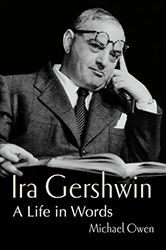Reading Leonard Cohen: Untold Stories is like being in a room full of people who had known the poet, singer, and songwriter, and catching snippets of their conversations. Every so often, the author, Michael Posner, interjects with a few sentences of explanation, to give context to a conversation or clarify a reference. The crowded room includes family members; former neighbors in Montreal, where he grew up; classmates from elementary and high school through his years at university; long-time friends, teachers, rabbis, writers, singers, fans, and of course, lovers. It’s an eclectic mix, reflecting the man himself.
There are numerous biographies of Leonard Cohen currently available. What Posner has done is not to duplicate them but to offer a view of Cohen from those who knew him; together, they are writing the story of his life. The first of a projected three volumes, this one covers Cohen’s childhood in the 1930s and 40s to 1969.
Since Posner’s source material is not found in archives but in people’s memories, there are contradictions, and here he serves as more of a host than a referee. He doesn’t attempt to determine whose reminiscence gets it right, but instead records divergent memories that contribute to filling in the person who was Leonard Cohen. He posits that Cohen himself would have approved of such an approach. Readers will as well.
It was around 2007 that Posner approached Cohen with the idea of an oral biography. Cohen was gracious in his response, but non-committal, and Posner didn’t pursue it. Then in 2016 Cohen died, and Posner revisited the idea. That revisit stretched into some five hundred interviews, and the result, in this first volume, offers a portrait of a quiet boy from a wealthy Jewish family who was expected to go into the family clothing business but instead became an acclaimed poet and novelist in Canada.
Much of that acclaim came by way of his Canadian publisher, Jack McClelland, who was committed to promoting Canadian literature and whose support for his authors was legendary. Even when he and Cohen quarreled, as they did, for example, over his novel Beautiful Losers and his book of poetry Flowers for Hitler, McClelland remained supportive. In 2004, when McClelland died, Cohen dedicated his album Dear Heather to him.
Cohen’s literary success did not mean financial success, and he decided to pursue a career in music. It didn’t look promising. When folk singer Ramblin’ Jack Elliott first heard him he thought, “What fine poetry. Too bad he can’t sing.”
In New York, Cohen played three songs for Judy Collins. “I fell off my chair at all three,” recalled Collins. She recorded two of them, “Suzanne” and “Dress Rehearsal Rag,” with more to follow.
Along the way were drugs, time spent on the Greek island of Hydra, cross-Canada poetry presentations in coffee houses and on campuses, and women, so many women. Women “swarmed around Leonard,” recalled Aviva Layton, wife of poet Irving Layton, a mentor of Cohen’s from his early writing years in Montreal.
And yet, in the hundreds of interviews there is agreement — Leonard Cohen was charismatic, genteel, gracious, gentle, kind, funny. Canadian folk singer and long-time friend Buffy Sainte-Marie sums it up: “he had a sweet heart about the important things in life, the aches and pains, the kisses and hugs.”





